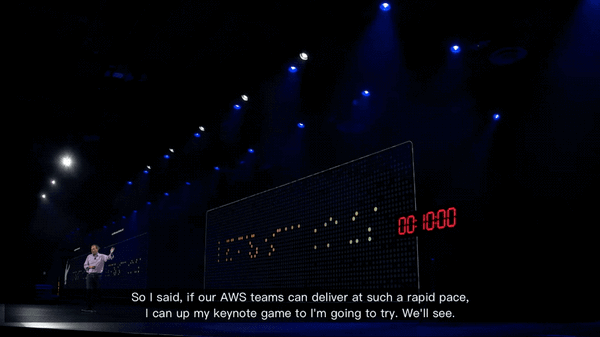Cultivating and Developing Strong Machine Learning Engineers
Transcript Summary: Vivek Gupta on AI Leadership, Engineering Growth & MAIDAP Program
Vivek Gupta
Director of the AI Rotational Program at Microsoft
Over 30 years of experience in consulting, software development, product work, customer engagement, and 12+ years focusing on AI and machine learning.
Worked initially at Nokia with maps and mobile device data, then joined Microsoft over 11 years ago. Experience includes cloud data onboarding, convincing clients about AI data security in the cloud, and leading diverse AI teams.
---
Overview of Discussion Topics
- Manager Knowledge Requirements
- Growing Early-Career ML Engineers
- Senior Engineer Skill Development
- Production Machine Learning Practices
- Team Structure and MAIDAP Program
- Key Technical Areas: Data Management, Privacy, Training Pipelines
- LLM-Specific Challenges
- Telemetry & Human-in-the-Loop
- Hackathons & Experimentation Culture
- Career Path Discovery for Engineers
---
What Managers Need to Know
Multi-Domain Awareness
- PM Collaboration: Understand project management principles.
- Applied Science: Grasp enough science to assess potential value.
- Engineering Updates: Stay informed on tech/tool evolution via industry blogs, experiments by innovators.
- Idea Flow: Spot opportunities and delegate exploration.
> You don’t need deep expertise in everything; rely on senior engineers for depth.
---
Growing Early-Career Engineers
Core Practices
- Frequent Feedback:
- PR reviews, code architecture tips, unit test reminders.
- Advice on prioritization, collaboration, and meeting effectiveness.
- Time to Grow:
- Balance tight release cycles with learning opportunities.
- Hackathons:
- 4–5/year to explore new tech without production constraints.
- Question Culture:
- Encourage asking for help early rather than persisting in isolation.
---
Cultivating Senior Engineer Skills
Feedback & Mentoring
- Seniors need peer feedback.
- Train them to mentor juniors to scale growth within the org.
Collaboration Beyond the Team
- Participate in org-wide talks, design reviews to spot unused synergies.
Principal-Level Thinking
- Propose strategic hackathon themes aligned to future goals.
---
Core Skills for All Engineers
Regardless of specialization:
- Coding standards
- Testing: Unit & integration tests.
- Ops: DevOps, MLOps, LLMOps.
- Cloud infrastructure & monitoring
- System design fundamentals
---
Production Machine Learning Practices
Moving from Experimentation to Production:
- Understand data science workflows (often notebook-based) and adapt for scalability.
- Collaborate across roles — engineers, ML engineers, data scientists.
- Implement resilience, telemetry, operational readiness.
---
Data Management in ML
- Dataset Tracking
- Test Set Management
- Pipeline Design — secure, efficient transformations.
- Exact-Match Validation
- Monitoring Data Drift
This merges database best practices with ML experimentation tracking and ongoing monitoring.
---
Privacy & Security in ML
Key Practices:
- No unnecessary logging of PII.
- Eyes-off data training.
- Use proxy datasets where possible.
- Enforce consistent standards across stakeholders.
---
Training Pipelines
- Maintain consistent “golden” datasets for fair comparisons.
- Automate retraining schedules (e.g., energy forecasting every 15 minutes).
- Orchestrate and monitor automated workflows.
---
Model & Prompt Management
- Version Tracking: For both models and prompts in LLM workflows.
- Compatibility: Handle API/model version changes, conduct regression evaluations.
- Rollbacks: Keep previous versions available.
---
LLM Evaluation Challenges
- No single “correct” answer — monitor version outputs over time.
- Build dashboards, run scheduled evaluation pipelines.
- Continuous prompt performance tracking.
---
Telemetry & Human-in-the-Loop
Telemetry
- Collect user questions & ratings when consented.
- Track prediction vs. real-world outcomes.
Human Oversight
- Always review AI-generated code/content before release.
---
Culture of Experimentation
- Hackathons encourage risk-taking and innovation.
- Reading groups keep teams current on AI/ML developments.
- Quick shifts in project focus (e.g., LLM surge from 1/10 to 9/10 projects within months).
---
MAIDAP Program Details
- Participants: Software engineers, applied scientists, TPMs — Bachelor's to PhDs/MBAs.
- Locations: Cambridge, MA & Redmond, WA — hybrid work.
- Structure: 4 projects in 2 years, diverse tech stacks/tools.
- Outcome: Transition to product teams with robust experience.
- Unique Value: Adaptability from switching projects/stacks every 6 months.
---
Career Path Discovery
- Engineers may choose ML specialization or full-stack/UI.
- Program designed to help participants find their niche.
- Early-career focus; targeted recruitment in fall.
---
Practical Advice
- For beginners/seniors new to AI: Start small, experiment, build something interesting.
- Integration: ML engineers collaborate like any other engineers; core processes are similar.
---
Key Takeaways
- Growth Culture: Feedback, experimentation, mentoring are critical.
- Core Engineering Skills: Remain constant despite specialization.
- Adaptability: Diversity in projects builds resilience.
- Integration: ML workflows must connect seamlessly with broader engineering processes.
- Monitoring and Control: Telemetry and human-in-loop safeguard quality.
- MAIDAP Model: Rotational structure accelerates skill-building and specialization discovery.
---
Further Reading: Presentations with transcripts
For content creators and engineers alike, open-source tools such as AiToEarn provide examples of integrated AI workflows — enabling generation, cross-platform publishing, analytics, and model ranking across Douyin, Kwai, WeChat, Bilibili, Rednote, Facebook, Instagram, LinkedIn, Threads, YouTube, Pinterest, and X — aligning well with modern experimentation, feedback, and scaling practices.



